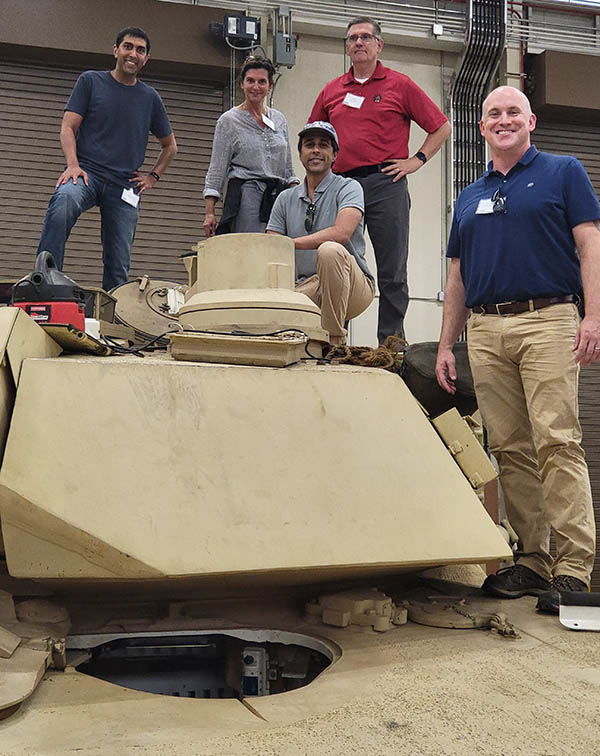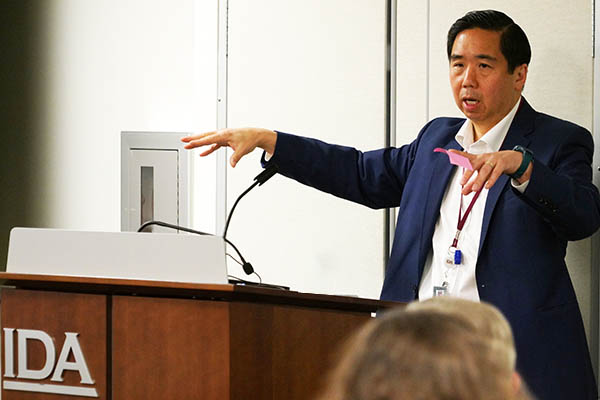
Federally Funded Research and Development Centers

Federally funded research and development centers (FFRDCs) are private-sector entities that have unique relationships with the federal government agencies that sponsor their work. They operate in the public interest as strategic partners with their sponsoring agencies to ensure that the highest levels of objectivity and technical excellence are applied to the work they conduct on behalf of the federal government.
Sponsoring agencies use the private-sector resources of FFRDCs to accomplish tasks that are integral to their missions and operations. Federal Acquisition Regulation (FAR) Section 35.017(Open external link) lays out policy on FFRDCs and their sponsoring agreements. According to the FAR, FFRDCs meet special long-term needs of their sponsoring agencies that “cannot be met as effectively by existing in-house or contractor resources.” They operate autonomously from their parent organizations, which are universities, other nonprofit organizations, or industrial firms.
Long-term relationships with sponsoring agencies
By developing strong, long-term relationships with their sponsoring agencies, FFRDCs attract quality personnel and maintain currency, objectivity and independence. Long-term relationships also ensure that FFRDCs can respond quickly to sponsor requests because they understand agencies’ needs and how they change over time. As outlined in a legal instrument known as the sponsoring agreement, the effectiveness of the sponsor-FFRDC association is evaluated every five years, after which the relationship can be renewed or terminated.
Although sponsoring agreements prohibit competition with non-FFRDCs for work, they can permit contracts with government, academic and industry organizations other than the sponsoring agency for work appropriate to the FFRDC’s intended purpose. To be appropriate, the work must require some combination of deep expertise, diverse experience, freedom from bias and conflict of interest, continuity of effort, ready access to highly sensitive information, and specialized facilities.
FFRDCs operated by IDA

The Institute for Defense Analyses (IDA) manages FFRDCs with core capabilities that meet the requirements for FFRDC-appropriate work. Two IDA FFRDCs, the Systems and Analyses Center and the Science and Technology Policy Institute, are study and analysis centers. The Center for Communications and Computing is a research and development laboratory. The National Science Foundation keeps a list of FFRDCs by name, sponsoring agency, administrator type, location and activity type.
Access to sensitive information
The sponsoring agreements between IDA and its sponsoring agencies provides our staff with access to sensitive and proprietary information necessary to carry out our work. In return, we agree to protect sensitive information the government provides as long as the data remains sensitive. All IDA employees are U.S. citizens and most attain and maintain a security clearance.
Our purpose
IDA’s vision is to answer the most challenging U.S. security and science policy questions with objective analyses leveraging extraordinary scientific, technical and analytic expertise, making IDA a compelling contributor to government decision-making. Our sole focus is on supporting our sponsors in service to the nation. Sponsors turn to us time and again for four reasons: our independence; our freedom from conflicts of interest; our responsiveness; and our record of conducting rigorous, informed and data-driven analyses.
View PDF(Open external link)

